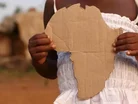WFP and UNICEF launch programme to support those affected by Cyclone

To support communities affected by cyclone Idai, the United Nations World Food Programme (WFP) and United Nations Children’s Fund (UNICEF) have launched a joint voucher programme.
The programme is set to run from August 2019 – October 2019, supporting 100,000 people per month affected by the cyclone in the districts of Dondo and Nhamatanda, Sofala Province.
WFP and UNICEF aim to address the essential food, hygiene and household needs of vulnerable people by offering monthly vouchers worth MZN2670 ($US44). The vouchers are redeemable at seven different shops in Dondo and Nhamatanda and will be distributed by Food for the Hungry.
“By working together to provide vouchers for food, hygiene, and household items, WFP and UNICEF are able to help households purchase and prioritise what items are most essential for them and their families. Having this level of choice is important as the needs of families in these areas remain significant,” says Emergency Response Coordinator for WFP in Beira, Peter Rodrigues.
SEE ALSO:
-
UNICEF Kenya and Nokia partnership to drive technical literacy
-
UNICEF teams with Safaricom to launch the Internet of Good Things in Kenya
-
Read the latest issue of Business Chief, Africa edition, here
In addition to providing vouchers for basic food and household needs, the programme wants to promote best practice for nutrition and hygiene too.
Where possible WFP will use cash and voucher programmes to empower and stimulate economic recovery. How effective the joint programme is will be recorded and analysed in order to help humanitarians increase their efficiency in response to emergencies, if successful the cash-based approach could be applied to future incidents of this kind. Currently, UNICEF has reached over 120,000 people with its hygiene kits as part of the first line response.
“Thankfully, markets in much of Dondo and Nhamatanda districts are now fully restored, especially those close to commercial centres allowing UNICEF to move to a voucher approach in these areas, allowing families to choose themselves the hygiene and household items which they need most. However, in rural and hard to reach areas with limited functional markets, UNICEF will continue to support families in-kind,” said UNICEF’s Beira Team Leader, Eimar Barr.
- COVID-19: Nestle provides over US$3.4mn in relief for AfricaTechnology
- COVID-19: De Beers Group contributes US$2.5mnLeadership & Strategy
- AfDB: improving sanitation and drinkable waterLeadership & Strategy
- The LEGO Foundation: driving education in Ethiopia and UgandaLeadership & Strategy



